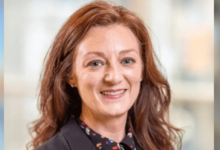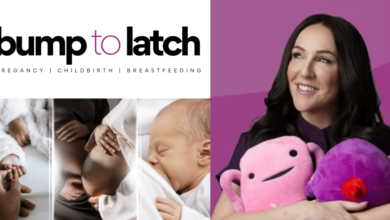AI has potential to make ‘lives of fertility nurses easier’

Artificial intelligence (AI) could make fertility treatments more accurate – and the lives of nursing staff “easier”, if new developments in the field come to fruition, according to an embryologist.
Lyndon Miles, director of the Centre for Reproduction & Gynaecology Wales (CRGW), told fertility nurse members of the Royal College of Nursing (RCN) that, while there was “some reason” to have hesitancy about AI, he was optimistic about it as an overall boon to the field.
“It’ll make the lives of nurses easier”
Lyndon Miles
Mr Miles spoke at RCN’s Fertility Nursing Forum Conference 2023, held in central London today, about how AI could massively improve the accuracy of fertility scans and, ultimately, increase the rate of births from IVF.
AI, Mr Miles said, could aid with embryologist tasks such as embryo selection and egg viability checking – but he also referred to emergent AI-driven technology around tasks performed by nurses, including checking follicle counts and other scans including ultrasounds.
He said that new AI technology can spot and map, in live time, follicle counts when checking a woman’s fertility, and remove human variance from analysing the results.
It can do this by checking it against hundreds of thousands of datasets. “It’ll make the lives of nurses easier,” he said.
“It can take away the differences in what nurses spot, which will save patient time, clinical hours, and just make scans faster. It takes away subjectivity.”
Mr Miles added: “Hopefully, it can decrease our workload.”
For embryology more broadly, he said massive strides were being made with AI technology that can check the viability of embryos or eggs in a matter of minutes – a job which could take a human embryologist hours.
He continued: “That is the power of AI. It permeates everything and, increasingly, is being used in medicine too. We can use it for treatments, dosages, gamete selection, and some of it is happening now.
“AI can be used to analyse huge amounts of data in fertility patients themselves, and use that to detect patterns and anomalies for better diagnoses,” he said.
“It can make IVF care plans more personal, with predictive analytics, based on thousands of pieces of data – we could tell a patient exactly what their outcomes will be based on their age, treatments and what medicines are available.”
Mr Miles said AI could help address a plateau in IVF success rates, and aid fertility lab staff, consultants, and nurses hugely.
He acknowledged, however, that it was not a perfect solution – and not a finished one.
Francesca Steyn, chair of the RCN Fertility Nursing Forum, mentioned known issues with generative AI, such as ChatGPT, giving wrong answers when asked questions.
“I don’t think we can 100% trust AI,” she said, addressing the points made by Mr Miles in his presentation.
In response, the embryologist highlighted the relative infancy of ChatGPT, but acknowledged that there was “some reason to have hesitancy against AI”.
“If I was using an AI in the lab which has seen 25 embryos, I wouldn’t trust it as much as one which has seen 100,000,” said Mr Miles.
He also acknowledged the possible practical complications of rolling out AI across health service fertility clinics.
“A clinic on its own would not have enough data for this,” he said. “In an ideal world, you want a dataset which everyone puts data into, and I can see how that would be difficult in the NHS.
“We will also need to increase computing power and data storage which, again, I know is hard in the NHS,” he told delegates at the conference.
Mr Miles further said that, for an AI tool to be truly useful for fertility nurses and other healthcare workers, it would need to be given a wide spread of data for all ethnicities.
He added: “With AI we might, like we do now, still have a beautiful blastocyst which won’t implant or isn’t viable. With all these things AI could or might improve, we must be mindful and acknowledge that.”







